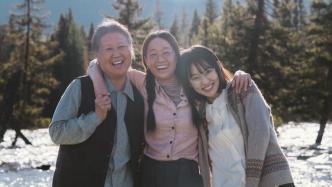
When watching the TV series "My Altay", which is adapted from the essay collection of the same name by Xinjiang writer Li Juan, the audience probably has this psychological expectation: to encounter beauty.
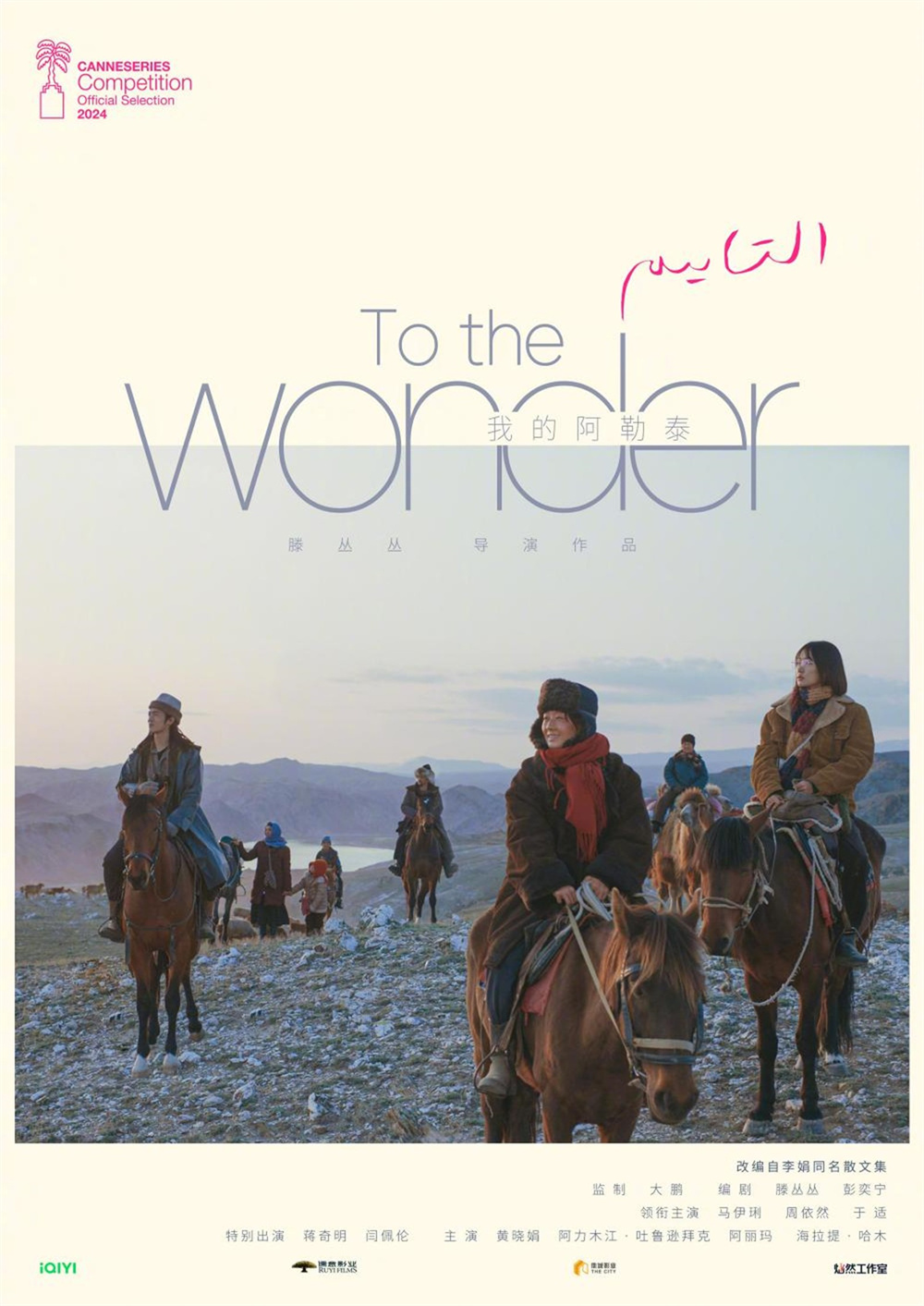
Poster of My Altay
As someone said, if Xinjiang is the closest place to heaven, then Altay is the center of heaven. Although it is not the most beautiful summer and autumn season in Altay when the series begins, the winter in Altay is also impressive. Shot in 4K ultra-high definition, the remoteness of Altay is portrayed in a refreshing and slightly desolate way.
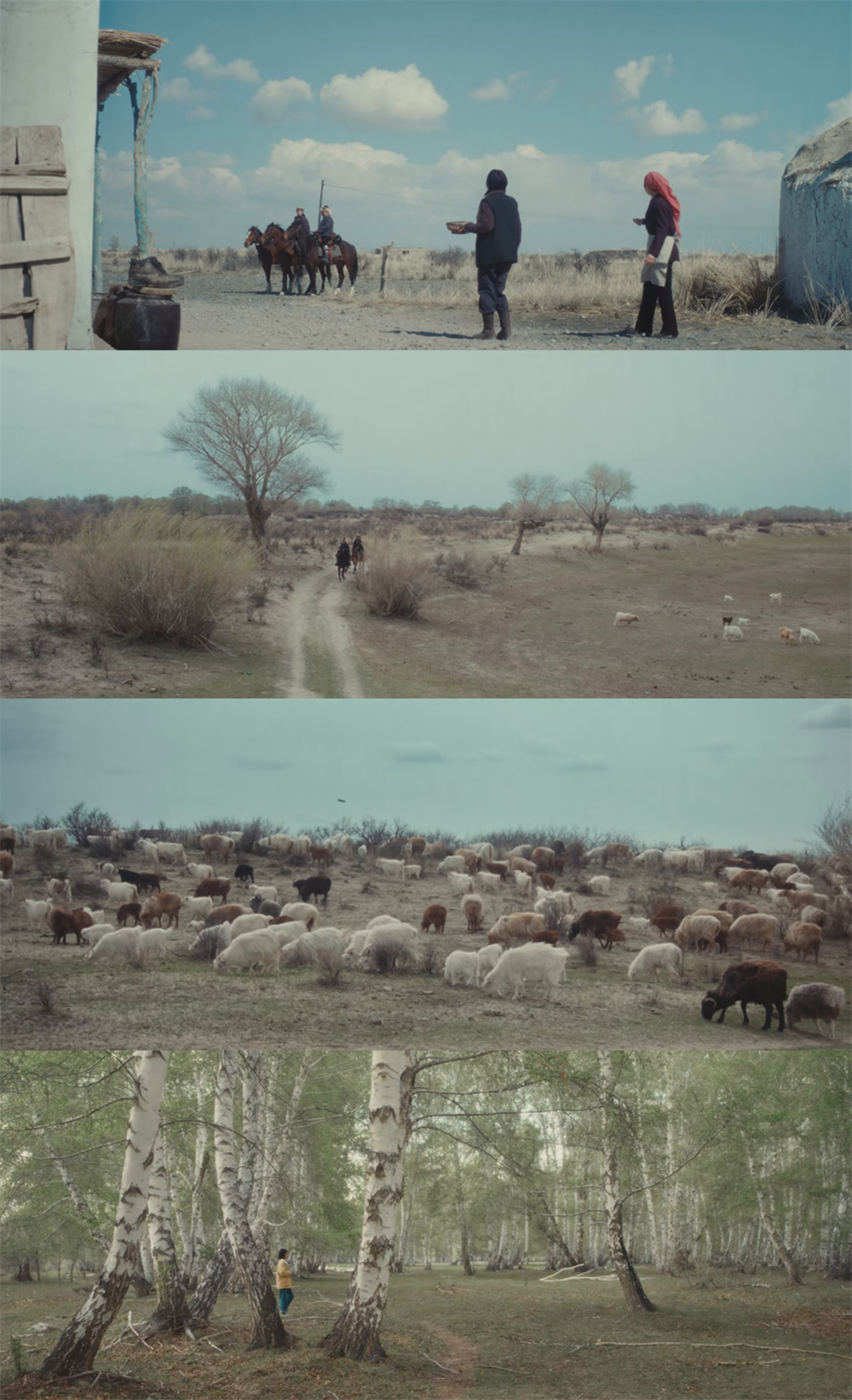
The photography is beautiful, and the sense of remoteness is portrayed in a refreshing way
The sky is high and clear, a unique feature of winter. Although winter is deep and the earth is asleep, and most of the surrounding grasses and trees have lost their summer prosperity and turned yellow, there are still unyielding greens that tenaciously penetrate the cold season and embellish the vast land. Trees, especially those cold-resistant pines and cypresses, stand tall and upright, looking particularly solemn in the silence, telling the world a story about time, survival and persistence.
Han girl Li Wenxiu (played by Zhou Yiran) "broke into" the herdsmen's settlement because her mother Zhang Fengxia (played by Ma Yili) opened a small shop. In the process of helping her mother collect debts, she soon discovered the difference in the way people get along with each other here: "This society in the deep mountains seems to be far away from the modern civilized order, but in fact it has its own spiritual constraints. The constraints imposed by the instinctive mutual needs between people and between people and nature are limited, but they are also sufficient."
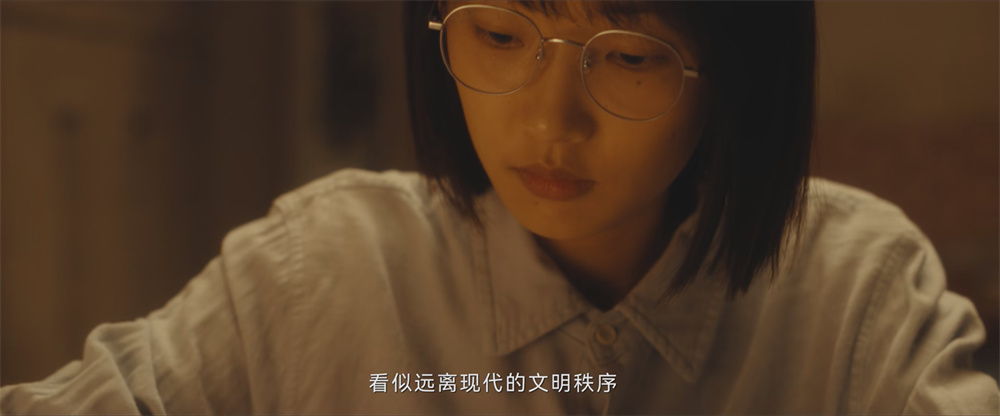
Li Wenxiu (played by Zhou Yiran)
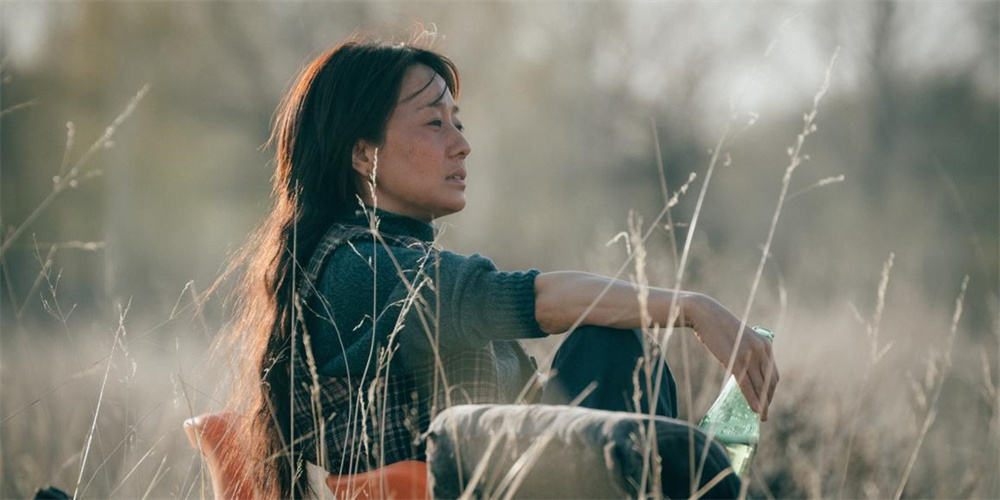
Zhang Fengxia (played by Ma Yili)
In a relatively closed environment with few interpersonal interactions, due to the lack of externally imposed rules, the establishment of interpersonal relationships relies more on mutual understanding and trust between individuals, and being straightforward and honest promotes close ties within the community. At the same time, self-discipline and mutual support of the mind build a kind of spiritual richness.
The series captures the magnificence and tranquility of Altay's natural landscape, and also reflects the harmonious coexistence of herders' lives and nature, as well as their exploration and maintenance of the delicate balance between tradition and modernity, nature and humanity in their settled lives. The audience can feel the remote and intimate beauty, and experience a spiritual baptism beyond the daily hustle and bustle.
But frankly speaking, if "My Altay" was simply filmed as a "propaganda film" and only gave the audience the feeling that the distance is too beautiful and too healing, that the current life is not worth living, and that the distance is worth going to, and so on, then the series would not only be a great simplification of the richness of prose, but would also fall into the rut of previous nostalgia literature - a single fantasy of the distance.
Imagining the "beauty" of distant places is an increasingly popular "urban disease". In the fast-paced, high-pressure urban life, many people are eager to escape and seek a piece of pure land. In the play, Li Wenxiu also encountered setbacks everywhere in the city - her writing was ridiculed, she was not used to working, and even Gao Xiaoliang (played by Jiang Qiming), a Cantonese boy who she thought was sincere, cheated her. She had no choice but to return to Altay to seek refuge with her mother. Although Li Wenxiu has no reverie about "distant places", her experience is very "urban".
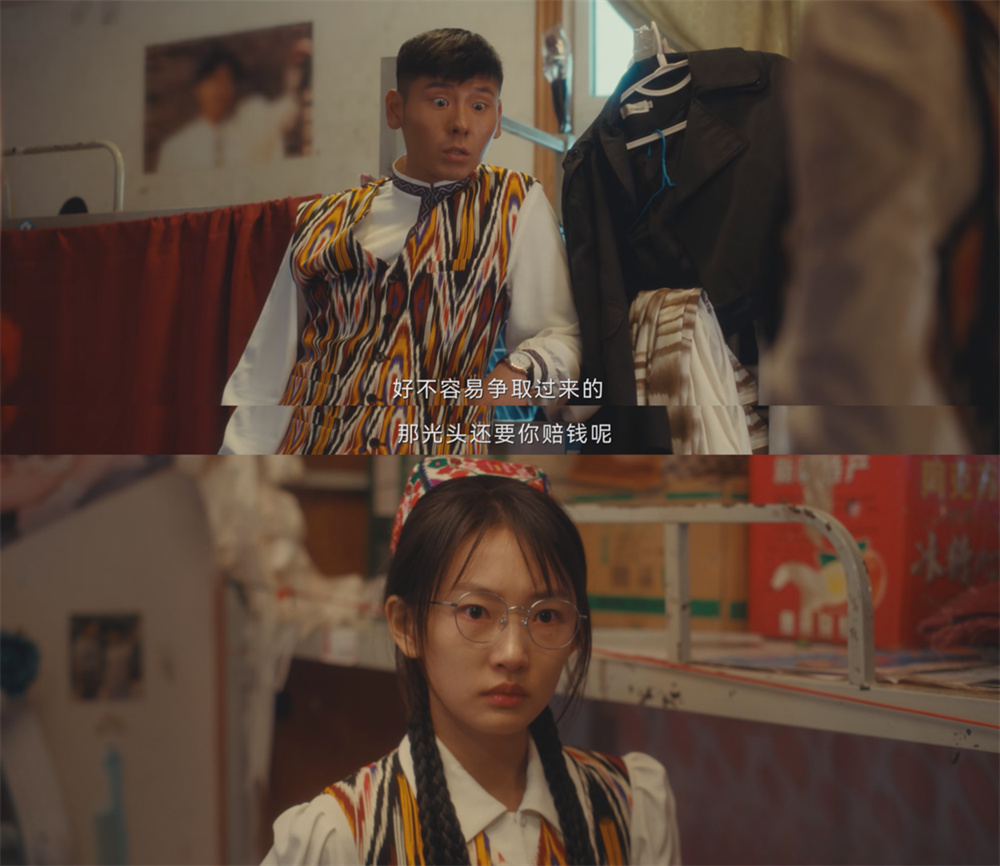
Li Wenxiu was shocked: the boss clearly gave her 300 yuan, but Gao Xiaoliang gave her 100 yuan and made it seem like he was particularly righteous.
From film and television works to various short videos, we often see praises of the beauty of "the distance", venting modern people's dissatisfaction with contemporary life and satisfying their yearning and imagination for a simple and pure life.
Such imagination of distant places is very simplistic. Distant places are conceived as utopias without current survival problems, but in fact every place has its own unique challenges and dilemmas. Idealistic imagination ignores the diversity of regional culture and the multifaceted nature of real life, and constructs an unrealistic single beautiful picture.
At the same time, viewing distant places as a panacea for personal problems or dissatisfaction reflects an escapist mentality that provides temporary psychological comfort rather than encouraging facing and solving real-life problems.
Li Juan's prose depicts the natural scenery and cultural customs of the Altay region with its unique style, full of deep love and attachment to this land. At first, I was very worried that the creators of the series "I am Altay" would further amplify these emotions and further idealize the natural beauty, simple life and tranquility and freedom felt by the author in Altay to the audience, making Altay a symbol of "distant" away from the hustle and bustle of the city and returning to a natural lifestyle.
Fortunately, the drama "My Altai" is not so superficial.
Compared to the "beauty", the first three episodes showed me that there is great pain in the distance. This is clearly reflected in the family of Batai (played by Yu Shi), a typical herder family in Altay.
Batai's brother was a long-term alcoholic, owed debts, was irresponsible to his family, and lacked care for his wife, Token (played by Alima). Token asked for a divorce, but her husband disagreed. After falling off his horse while drunk, Batai's brother froze to death in the cold winter night.

Token (Alimama) wants a divorce but is denied
Originally, Batai was a horse breeder in Yili. He was wild and free, he loved horses and had a talent for horse breeding. After his brother died, he was asked by his father to return to the ranch to "follow his father's business."

Ba Tai (played by Yu Shi) has his beloved horse
Token was determined to remarry even though her husband had died before they could get a divorce, but Batai's father disagreed and even asked Batai to live with her sister-in-law and raise her brother's two children together according to local customs.
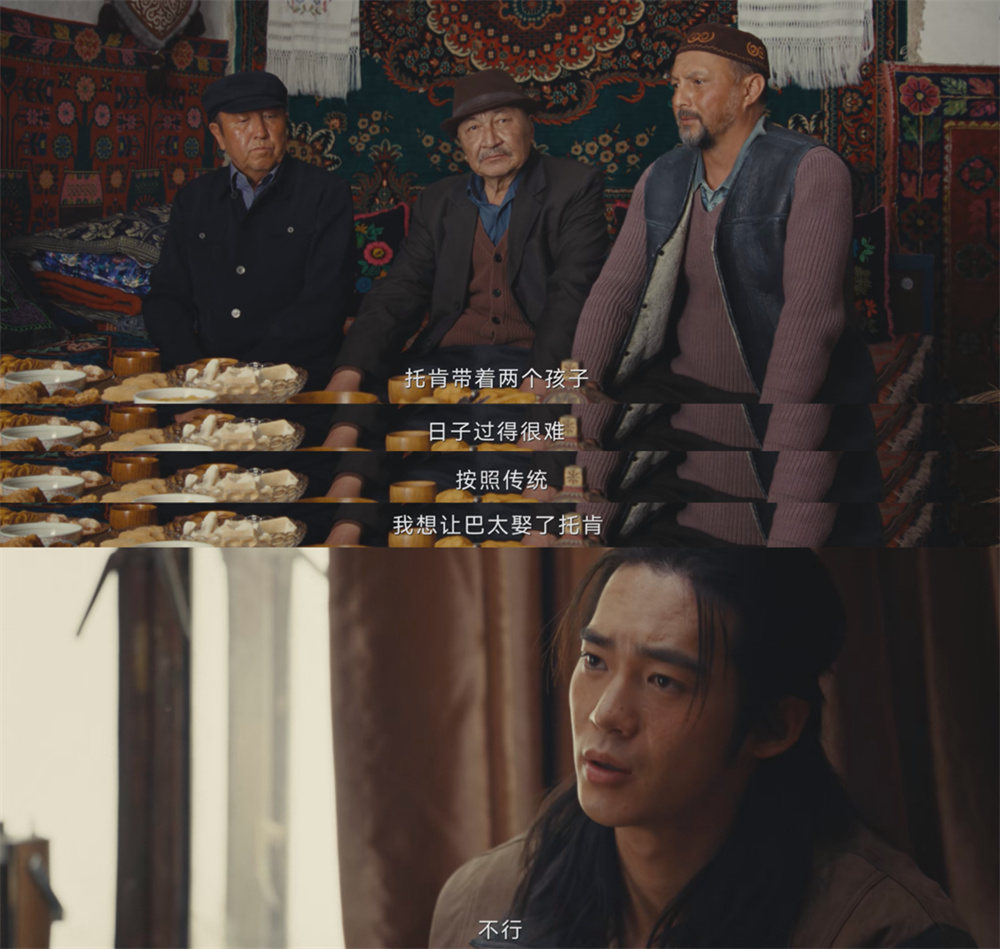
Patai opposed his father's arrangement
Ba Tai disagreed. He told his sister-in-law that he would persuade his father. Token sneered helplessly, "You have the final say? It's not Dad who has the final say... Men can go wherever they want. We women have to cook, wash clothes, and take care of children. We don't even have time to go out. I told your brother many times to go to the store to buy me a washboard, but he never brought it back until he died."

Token's Complaint
Does this distant side still make the audience feel "healed"?
This land known as a paradise is not entirely worry-free. It carries the multiple aspects of life, the edges and hardships of reality, and the undercurrents of human struggle and helplessness.
Wives are entangled in household chores, as if bound by invisible ropes to traditional roles. They seek freedom but are repeatedly bound by social customs. The road to divorce is full of thorns and freedom seems like an unattainable dream.
For the young generation like Batai, the conflict between ideals and responsibilities is like two irreconcilable winds on the grassland. They have aspirations for the outside world and the spark of their personal ideals, but they have to make a choice between family inheritance and self-pursuit. Batai is tightly bound by tradition and the expectations of his parents.
Through these delicate and realistic depictions, the TV series "My Altay" not only shows the multi-dimensional life in Altay, but also makes the audience realize that even in the place closest to heaven, the pain and challenges of the world are still everywhere.
At the premiere of the Beijing Film Festival (the first three episodes of this drama were broadcast at the Beijing Film Festival), many creators explained the drama, and I think the most accurate one was the director of photography Liu Yizeng. He said, "The beauty of Xinjiang is very straightforward and fierce. You have to face all kinds of climates and harsh physical challenges." "When we were shooting, it wasn't beautiful every day. Sun showers and sun snow were common. When shooting the first scene of the canteen, we ate sand from our ears to our hair to our mouths, just like chewing peanuts; when shooting the horse race, the strong wind overturned all the scenery and tents on the scene; when we finished shooting, it suddenly hailed, and the entire filming team was trapped in the grassland."
This description invisibly and accurately summarizes the distant place that we find particularly healing - it is beautiful and straightforward, but also contains fierce and demanding challenges.
Perhaps the key to healing has never been whether you are in a big city or in Altay, but rather your attitude towards life. Compared to the natural beauty of Altay, perhaps Zhang Fengxia’s attitude towards life is the soul of this drama—at least in the first three episodes.
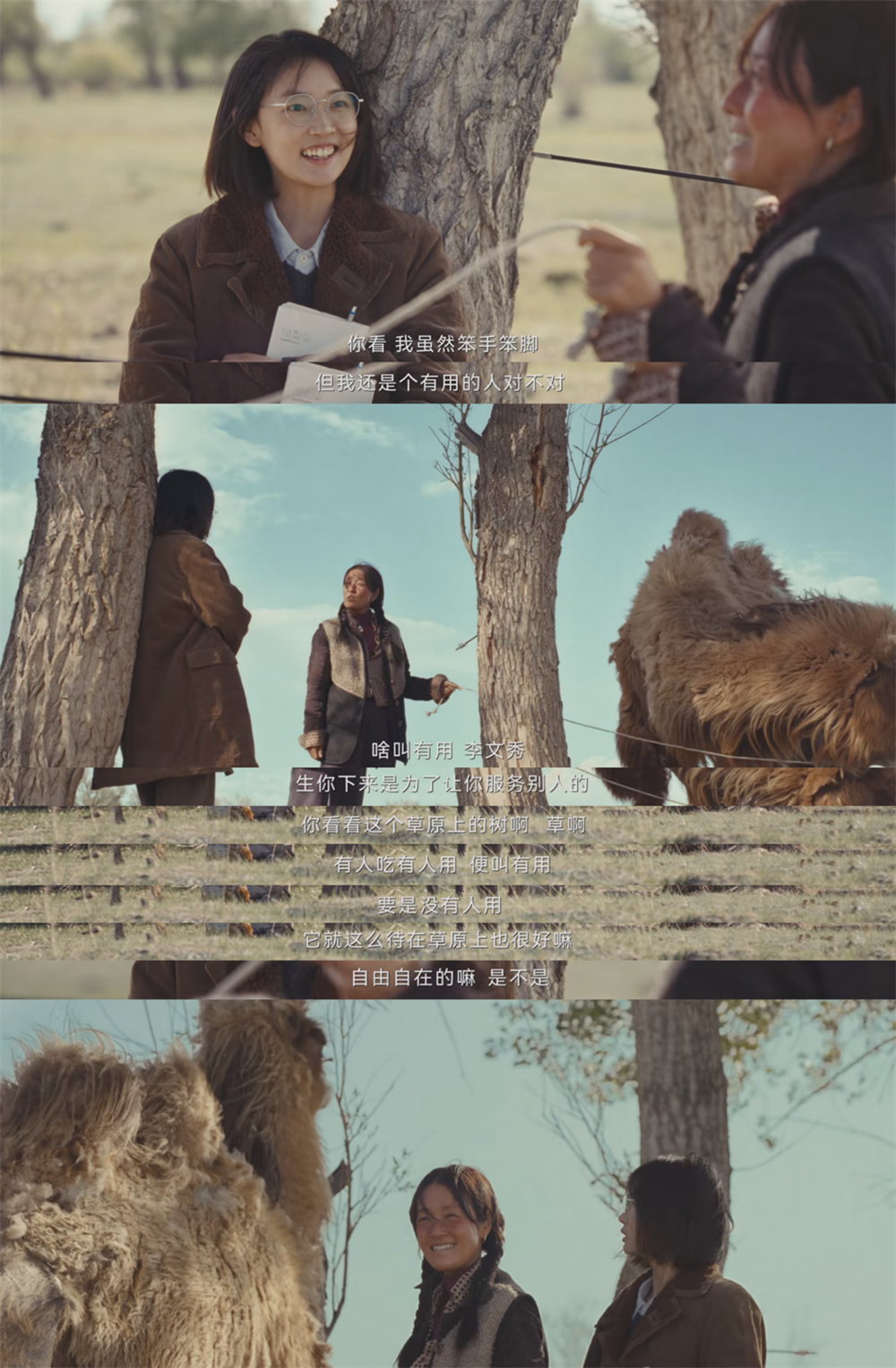
Zhang Fengxia (Ma Yili) has a free soul
Zhang Fengxia uses Altay as her stage to show the world what true optimism and open-mindedness is, and how to find freedom and ease in adversity. Her story becomes a ray of light, illuminating the wisdom of survival in different cultures and environments. It is also a profound inspiration to all those who pursue a happy life - the beauty of life does not lie in your geographical location, but in how you grasp the steering wheel of life, use optimism, wisdom, courage and love to control the waves of life and reap your own happiness.


